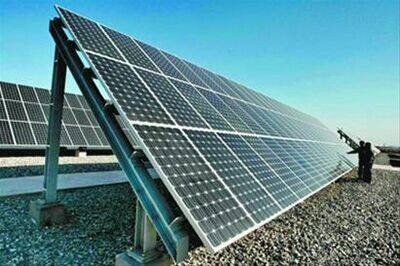Greece Gears up for Net Metering
Global
PV markets, Industry & Suppliers, Markets & Trends | By: Ilias Tsagas

Greece’s Environmnet Ministry will
make net metering possible for households and businesses, but the local PV
industry has taken issue with its controversial provisions.
Greek
Deputy Minister of Environment, Energy and Climate Change Asimakis Papageorgiou
has revealed the new renewable energy systems bill currently under preparation
will introduce net metering.
The
country’s PV industry has expressed disappointment with what its sees as the
bill’s limitations, however, and recommends a different approach.
Asked
by a member of the Greek Parliament whenGreecewas going to introduce net
metering, Papageorgiou confirmed that the ministry is gearing up to introduce
net metering under its new legislation on renewable energy systems.
Papageorgiou
said the bill, which is expected to go to parliament in August, would include a
provision permitting households and businesses to install solar PV and small
wind turbine systems to produce their own energy. These installations will be
exempt from the suspension of new photovoltaic systems licenses and connection
requests introduced in August 2012.
In
cases where a local distribution grid does not have the capacity to absorb the
solar power produced, net metering installations will still be permitted as
long as the balance of the network is not threatened. However, Papageorgiou
added that there would be no payments for any surplus energy injected into the
network after offsetting the energy produced and consumed at the end of each
metering period. Thus, electricity grids will absorb any surplus power
produced, but will not be obliged to pay for it.
This
appears to be the largest point of contention between the Environment Ministry
and photovoltaic stakeholders. The Hellenic Association of Photovoltaic
Companies (HELAPCO) has called for “any surplus energy generated during a
metering period to be credited towards the next metering periods within a calendar
year.” HELAPCO said a maximum annual credit should be set per energy producer
and only power exceeding this credit should be absorbed by the electricity grid
for free.
HELAPCO
has also asked for a reduction in connection costs according to the actual costs
and to prices in other countries. HELAPCO said “the cost of connecting a Greek
household solar PV system to the electricity grid is around €800 to €1,000 plus
VAT.” Corresponding costs inGermanyandCyprus,
HELAPCO added, are around €150 and €250, respectively. Connection costs include
the application fee, the cost of the meter and control checks of the
installation.
Papageorgiou
said the reason the Environment Ministry’s new bill would not allow payments
for any surplus energy injected into the network at the end of each metering
period was to avoid worsening the deficit of the Renewable Energy Sources fund,
used to pay renewable energy producers inGreece.
According
to data published in July by Greek electricity market operator LAGIE, the
fund’s deficit reached €436.1 million by the end of May.
The
Environment Ministry had initially published a consultation paper on net
metering technologies forGreecein April. In May, the Ministry announced new feed-in tariffs (FITs) for
photovoltaic systems, including drastic cuts in FITs for rooftop installations.
Since then, the Greek photovoltaic industry has been expecting a new law
permitting net metering installations, hoping that this would revive the
domestic photovoltaic market, which has been hit hard by the Renewable Energy
Sources fund’s huge deficit, lower tariffs and the Greek government’s
mismanagement of the energy market.

